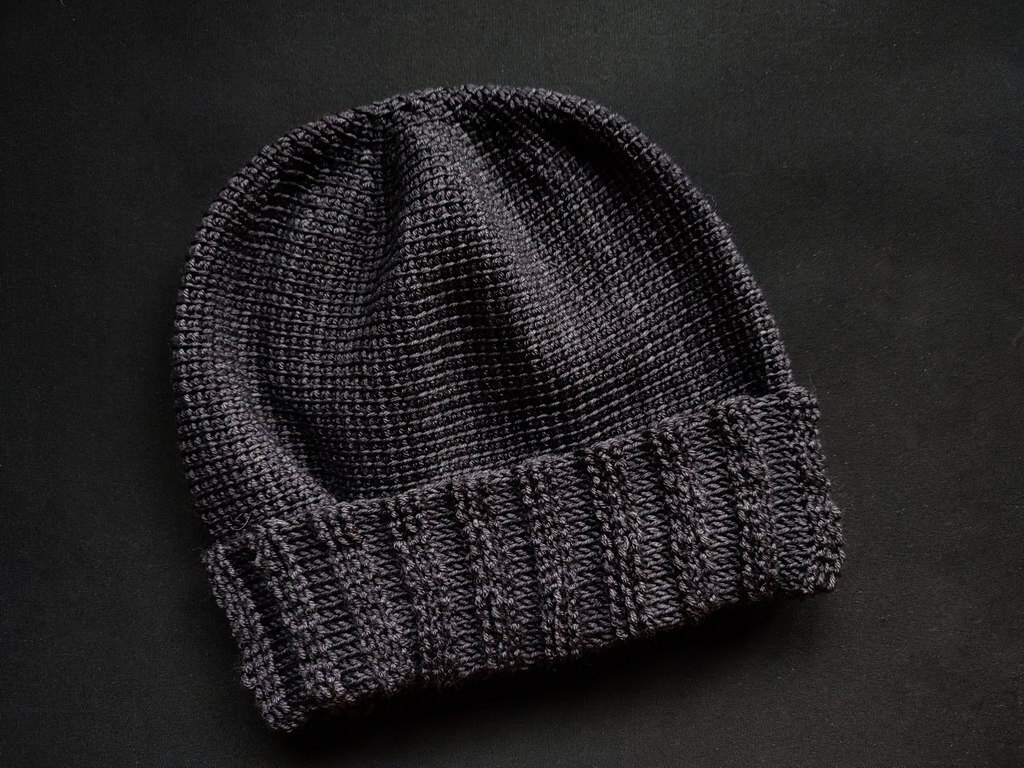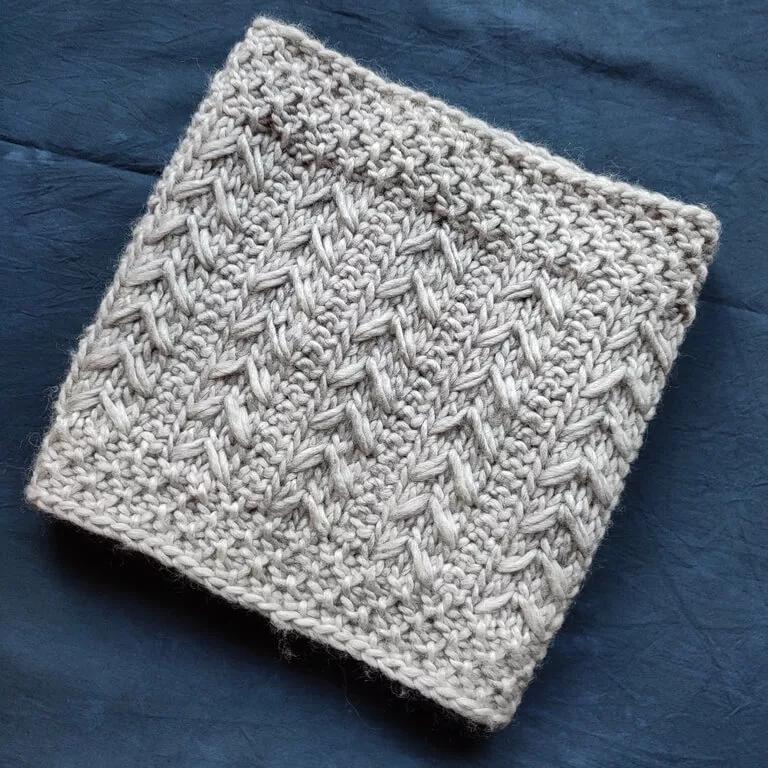Greet the new year in a luxurious Tunisian crochet scarf made with glittery yarn, or make yourself or your loved ones a quick scarf to keep out the winter cold.
Easy to customize for width and length, and with an elegant bias construction that shows off variegated yarns, this project works up fast and looks fabulous, especially if you add a little twisted fringe on the ends.
If you’ve been looking for a quick winter project and an easy to memorize pattern (just 3 rows to remember!), my suggestion is to give this a try.
I made mine in a sparkly yarn with random gradient transitions from a dark cherry red to a dark purple, where each of the two plies changes gradually and independently, creating a woven-like appearance in the scarf.
This pattern is perfect for hand-dyed or handspun yarns from colored fibers, which have a natural variegation that can create unwanted pooling in other types of projects.

Contents
About this C2C Tunisian crochet scarf pattern
An easy and quick pattern, this corner to corner scarf works up wonderfully in a short gradient or variegated yarn, showing off the color changes in a beautiful progression on the diagonal.
The simple stitches in such a variegated color make the fabric appear woven, due to the interplay of colors on the forward and the return pass.
I created this design with a New Year’s Eve party in mind, where a narrow scarf with playful fringe can be a warm and fashionable accessory.
Pick a yarn with drape and a bit of sparkle in it for this special occasion, or use a lofty, fluffy yarn for a warm winter accessory.


If you make it long enough (about 2 meters or 6 feet), you can wrap it around twice.
Notions
The pattern works in any gauge, so the notions below are just a suggestion, based on what I used.
Yarn – DK weight wool or acrylic yarn with 200-250 meters per 100 g; 200 g or 400-500 meters for a skinny scarf;
Hook – 6 mm hook or hook that gives you a sturdy fabric without holes;
Tape measure, tapestry needle and scissors.
Abbreviations
- Ch – Chain;
- Ls – Last stitch: insert hook behind the two vertical bars at the end of the row, YO and pull up a loop;
- R – Regular return pass: Ch 1, Rep [YO and pull through 2 loops on hook] until 1 loop is left;
- St(s) – stitch(es);
- Tfs – Tunisian full stitch: insert hook in the space between the current stitch and the next, pull up a loop;
- Tss – Tunisian simple stitch: insert the hook under the vertical bar of the next St, YO and pull up a loop;
- Tss2Tog – decrease: insert the hook behind the vertical bars of the next 2 stitches and draw up a loop;
- YO – Yarn over.
Observations
This scarf is worked along the short side, from one corner to the other (C2C).
You start with a symmetrical triangle, then continue in rows that grow on one edge and decrease on the other edge, then finish with another symmetrical triangle.
Video tutorials
These video tutorials will show you the various techniques used in creating this scarf, including a full video tutorial for the scarf.
Full tutorial for right handed crocheters.
Full tutorial for left handed crocheters.
If you need in-depth tutorials for the different techniques, find them below.
Starting a project in the round.
Right handed
Left handed
Tunisian simple stitch
Adding fringe to the ends of your scarf.
Written instructions
Start with 3 stitches in a MR. If you don’t yet know how to start in a magic ring, follow this tutorial.
In the following instructions, the first stitch (first loop on the hook) is not explicitly mentioned, but it is counted on every row. You do not work into this stitch.
1. Starting triangle
Row 1. 1 Tfs, 1 Tss, 1 Tfs, Ls, R — 5 loops
Row 2. 1 Tfs, 3 Tss, 1 Tfs, Ls, R — 7 loops
Row 3. 1 Tfs, Tss across, 1 Tfs, Ls, R — 2 Sts increased
Repeat Row 3 until you reach the desired width, which is the height of the project along the edge with the Ls.
You will have a multiple of 2+1 loops.
Weigh the piece and calculate how much yarn you can use for the main fabric, considering that the ending triangle requires the same amount of yarn as the starting triangle.
Optional: After finishing this section you can add the fringe and weigh the yarn used for the fringe. Set aside the same amount of yarn for the fringe for the other end of the scarf.

2. Main fabric
This section will make up most of the fabric in the scarf. The stitch count is constant throughout this section.
Row 1. 1 Tfs, Tss across until 1 St is left, Sk 1, Ls, R
An alternative way of making this row:
Row 1. 1 Tfs, Tss across until 2 St are left, Tss2Tog, Ls, R
This method makes the edge stitches more visible.
Repeat Row 1 until you are satisfied with the length, leaving enough yarn for the ending triangle and optionally for the fringe.
Ending triangle
This section will square up the corner of the scarf, turning it into a rectangle.
Row 1. Sk 1 St, Tss across until 1 St is left, Sk 1, Ls, R
An alternative way of making this row:
Row 1. Tss2Tog, Tss across until 2 St are left, Tss2Tog, Ls, R
Repeat Row 1 until you have 1 Tss left to work into.
Last Row. 1 Tss, Ls, YO and pull through 3 loops on hook
Do not cut off the yarn if you want to add the fringe, but turn the work and make the fringe along the short edge of the scarf.
If you don’t want to add the fringe, then cut the yarn, leaving a tail. Pull the tail through the last St and weave in the end.
Block the scarf to prevent curling.
Final remarks
If you enjoyed this pattern, there are more free patterns for Tunisian crochet projects on the blog.
Here are some patterns for accessories in Tunisian crochet that you might also enjoy:
If you want to know when I publish more free tutorials, sign up to my email updates below.
And if you want to save this post for later, you can use the image below to pin it.




